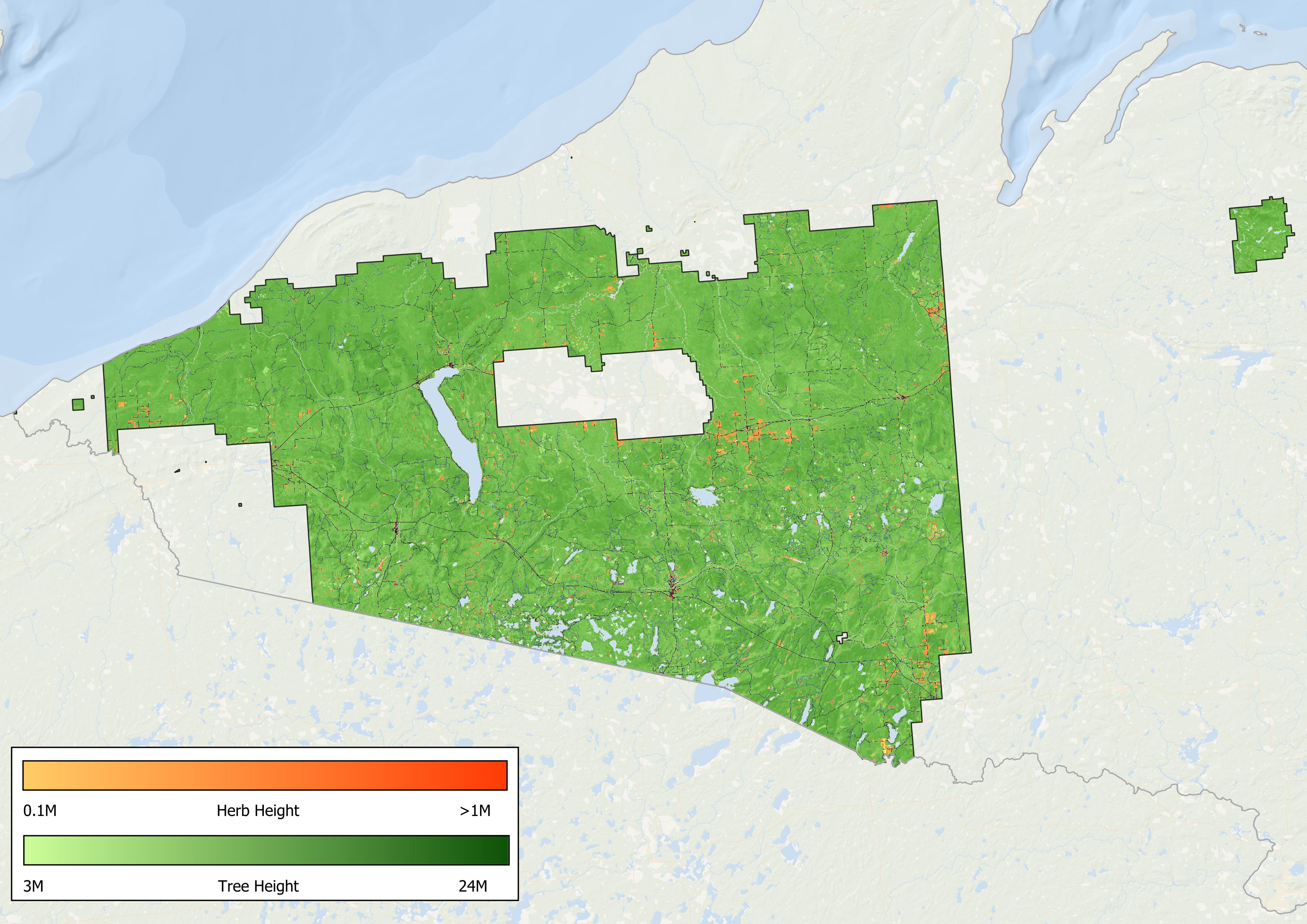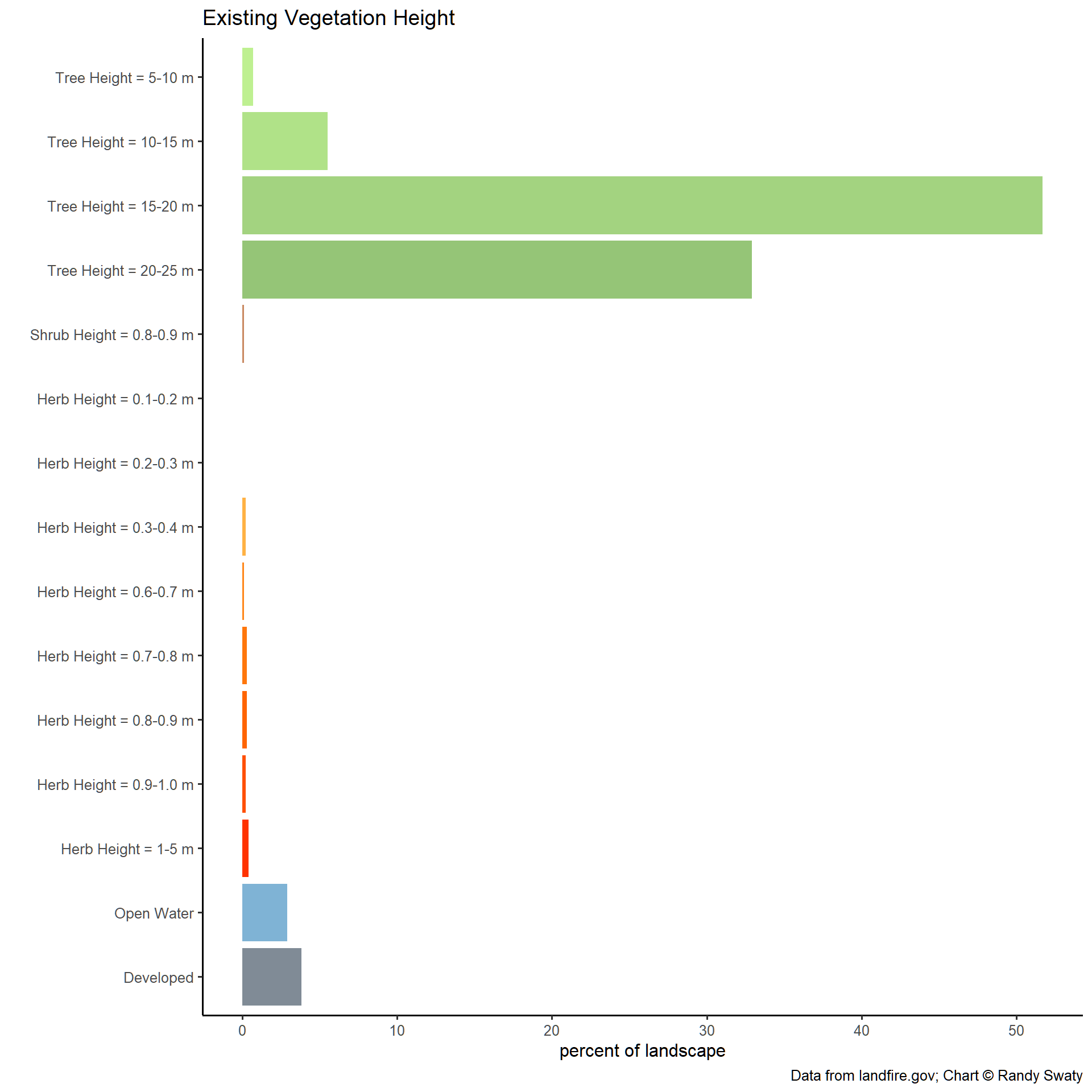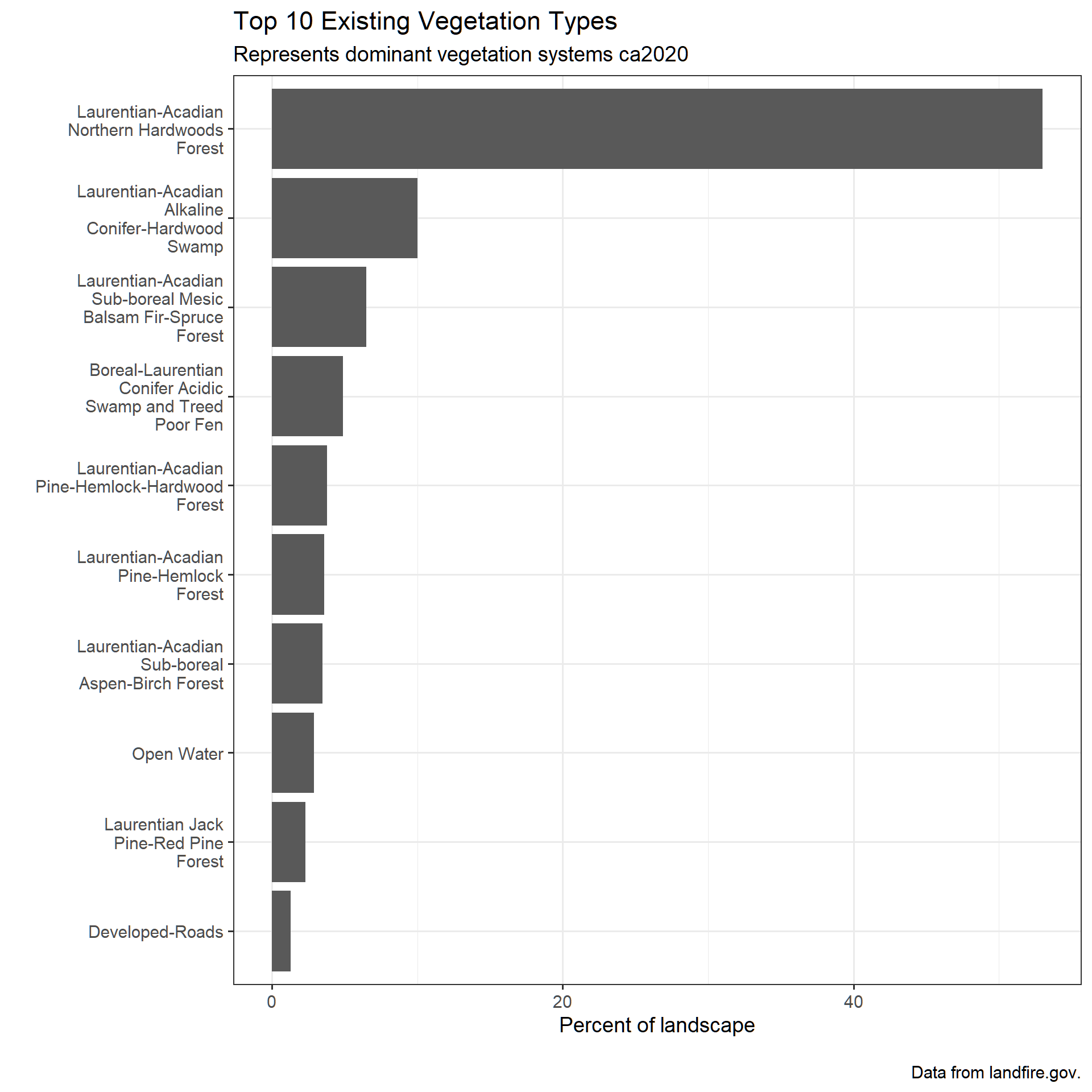
Present
LANDFIRE’s Existing Vegetation Type, Cover and Height datasets describe vegetation conditions.
- Existing Vegetation Type (EVT) - represents the current distribution of the terrestrial ecological systems classification, developed by NatureServe for the western hemisphere, through 2016.
- Existing Vegetation Cover (EVC) - represents the vertically projected percent cover of the live canopy layer for a 30-m cell.
- Existing Vegetation Height (EVH) - represents the average height of the dominant vegetation for a 30-m cell.
Read more about LANDFIRE Vegetation Products
Summary
In general the Ottawa National Forest, as of 2020, had not experienced substantial conversion of natural ecosystems to developed or agricultural types, though there are some patterns to note:
- It is tempting to directly compare the past and present maps-do so with caution as the classification system has been modified.
- The Laurentian-Acadian Northern Hardwoods Forest type is still dominant regardless of classification system.
- The aspen-birch EVT that was mapped in 2020 may have been a succession class in the historical ecosystems. It is not clear from this analysis alone if this type has changed in extent, or not.
- Note-there are some changes in the wetland naming convention. For example the Boreal-Laurentian Conifer Acidic Swamp and Treed Poor Fen is not represented in the BpS classification.
Most Prevalent Existing Vegetation Types
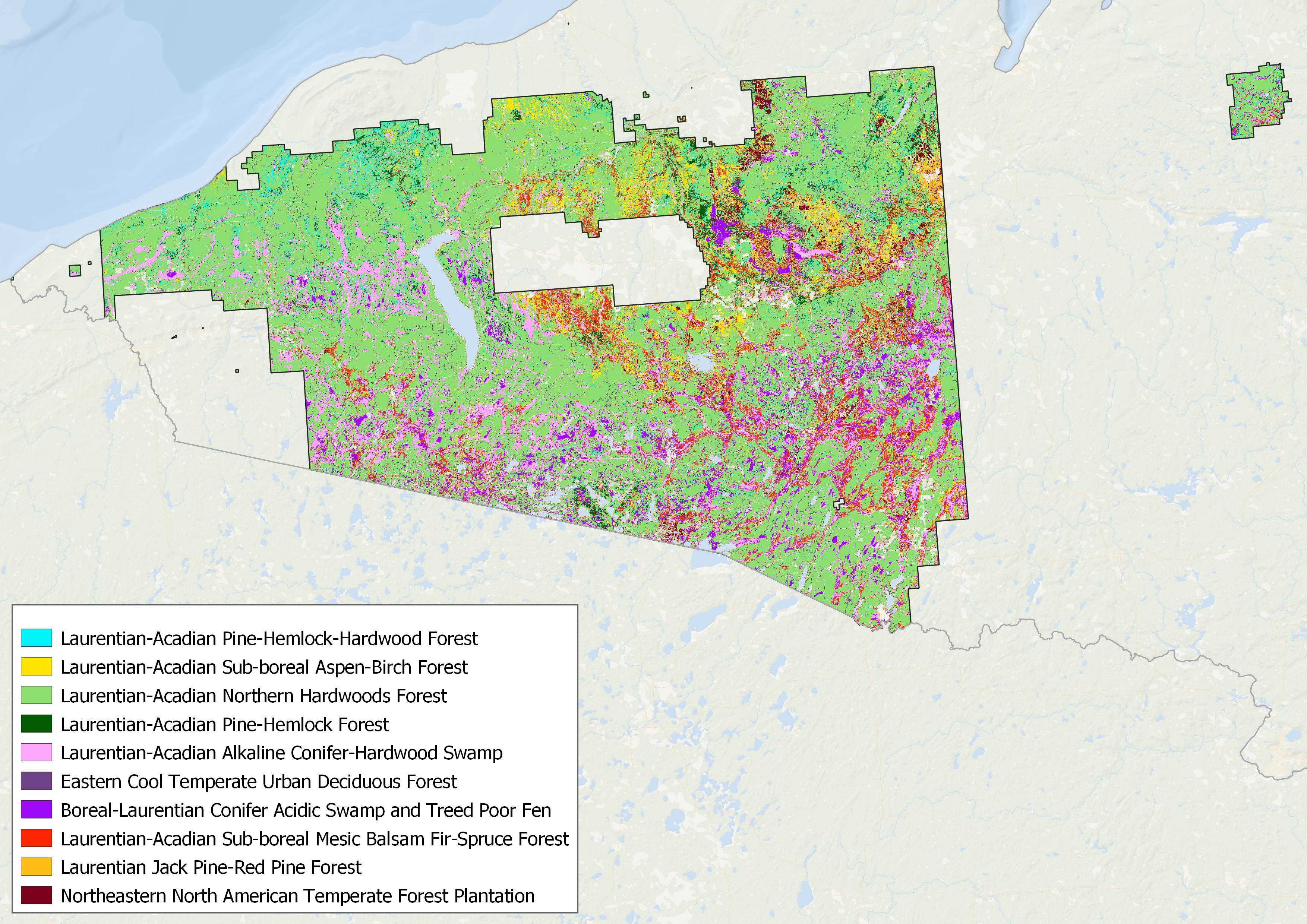
Existing Vegetation Cover
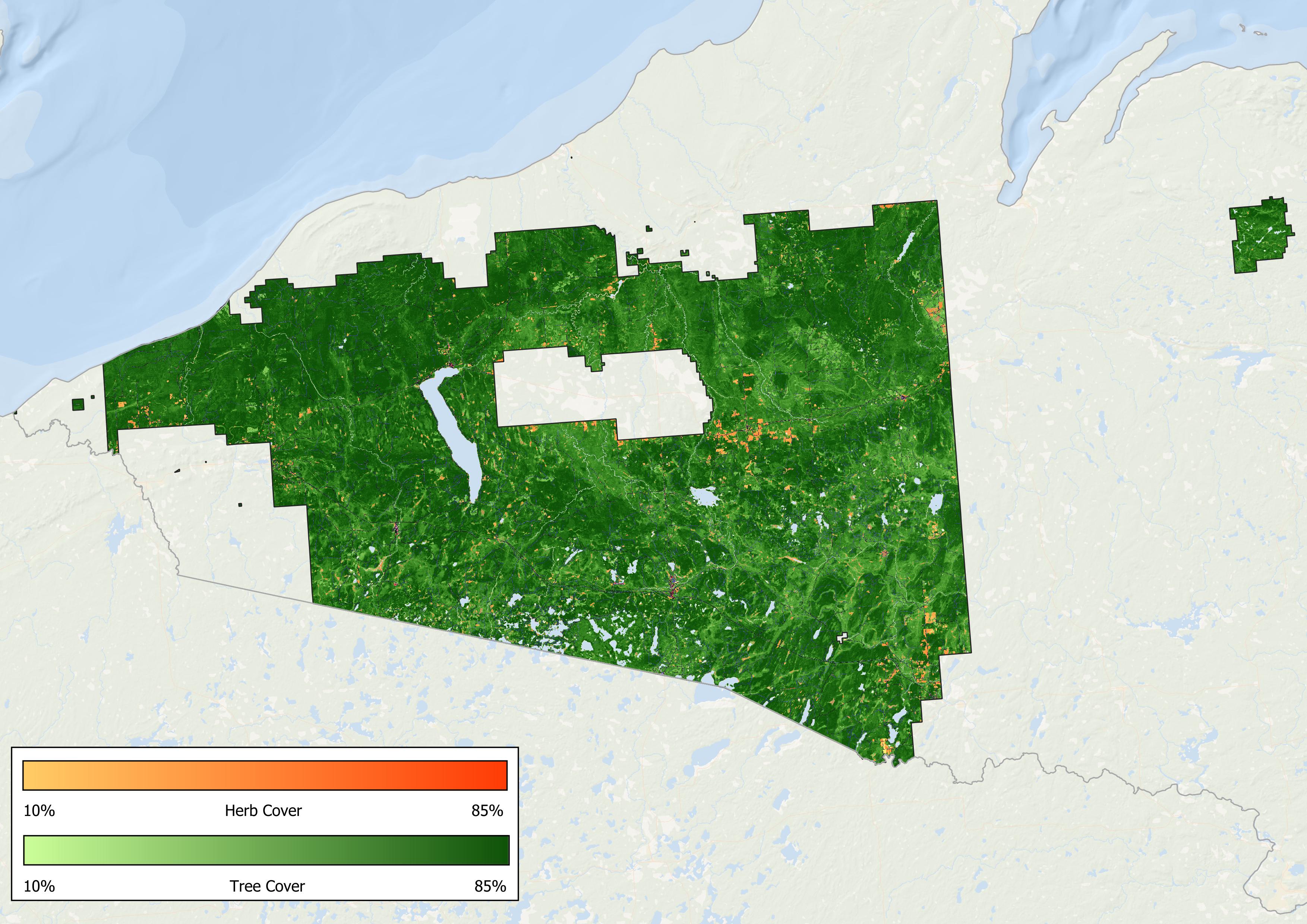
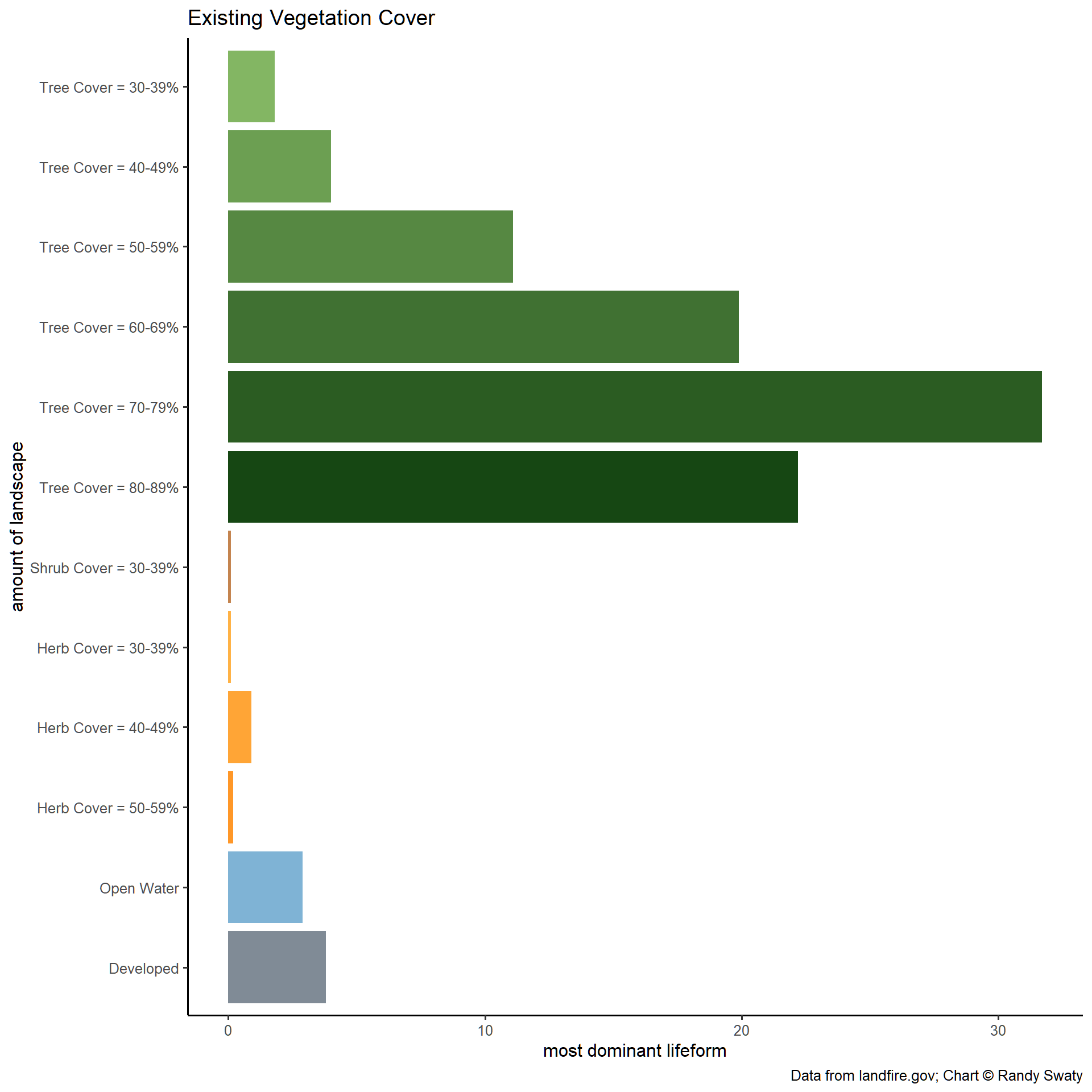
Existing Vegetation Height
